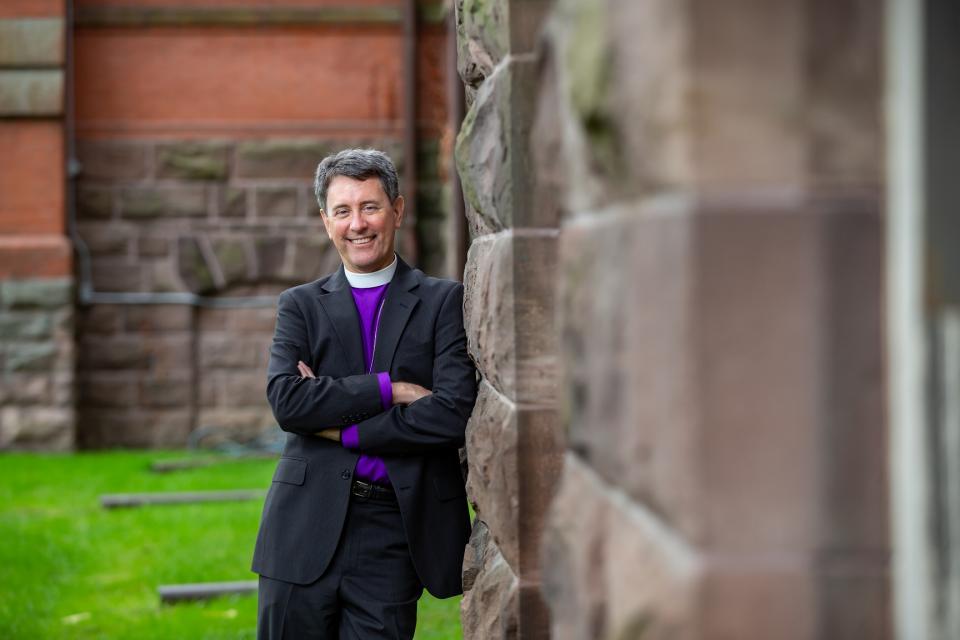THE NEW NORMAL IS NOT NORMAL. So read a sign held aloft by a protester who appears regularly on the north side of Queen’s Park. I don’t pause to understand what the protest is about as I make my way to the market for some shopping, but I judge by the fact that they are not wearing masks or practicing “social distancing” that they disapprove of government policies which they find overly and unwarrantedly restrictive.
There is, of course, a diversity of opinion in the Wycliffe neighbourhood regarding appropriate responses to COVID-19. Some say we may have gone too far in issuing thermometers to all of our residents and limiting access to offices. Others say that the personal risks to the vulnerable in our community, not to mention the liability shouldered by our Board of Trustees, requires a most cautious vigilance. I can’t say that there is anybody who is entirely happy. I look forward to the announcement of a vaccine not only for the health benefits it promises but because it will usher in a return to some sort of routine more closely related to the reason this College exists.
Fortunately, one of the things that is characteristic of Wycliffe folks is that we are a dedicated lot with a heart for the mission of the College. While the province and the Yellow Pages see us solely as a “Post-Secondary School,” we know ourselves to be “God’s household” (1 Timothy 3.15). We recognise that we are bound together in more than just our common humanity. There is a sense in which we exist for one another as, together, we live for the world. Consequently, we have found some compromise in a spirit of mutual generosity and patience.
This fall we are exploring the safest way to stage one class that will feature students who are both personally and virtually present (a so-called “hybrid” class), and we will do the same with our daily morning prayer services (“hybrid worship”?), which will be broadcast from the Chapel. We have worked hard to adapt our teaching methods to the remote learning context, while our Student Council and Chapel teams have devised ways we can foster community at a distance through online fellowship groups and Zoom events.
But it sure ain’t normal. And the future is so uncertain that even politicians, health officials, and business leaders are reticent to predict what the “new normal” will look like. It’s mind-boggling to think how much the world has changed in just twenty-six weeks.
One of the things I have found most difficult is settling into a daily routine, as each day becomes a single event consisting of answering e-mails and attending online meetings. And the boundaries between office and home seem to get very much blurred. But routines are important, and they may just be one of the most important keys in finding and maintaining sanity. I have been sustained over the summer by daily prayer in the Chapel, which I have shared with two or three devout residents.
I would urge you to be conscientious about routines this coming term. Establish a rhythm in your daily life. Take a walk every day. Skip lunch on Fridays. Call somebody on Wednesdays for no reason, except that you want to know how they’re doing. Take a nap every day. Listen to music. Disconnect from the internet. Identify one thing each day for which you are grateful. Write in a daily journal. And, of course, pray.
The demands of these days are unrelenting. But the payoff in adopting such routines is not just our mental and physical health. Our good habits are often the avenues of spiritual transformation. The legendary Pablo Casals once revealed to an interviewer that he had played one of Bach’s Forty-Eight Preludes and Fugues every morning for the past eighty-five years. Did he not get tired of this? the interviewer asked. Was it not boring? No, replied Casals, each playing for him was a new experience, an act of discovery. So may our days, in all of our isolation and virtual reality, be blessed with moments of revelation and connection, where we come to learn deeper truths about God, ourselves, and one another.





